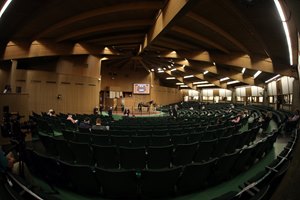Among Book 1 Yearlings Sold, Market Surprisingly Solid


Where is the North American yearling market in terms of value?
Yes, it's down as expected due to the economic turmoil associated with the COVID-19 pandemic and this year's two-day Book 1 of the Keeneland September Yearling Sale produced a sobering 35.5% buy-back rate. An analysis of the horses sold by decile, however, shows a market that is surprisingly solid—for the right horse.
The number of extraordinary influences wrapped around this year's Book 1 is a ball of yarn. First, Book 1 was held over two days this year instead of three a year ago. Next, the make-up of the Keeneland catalog was surely affected by the Fasig-Tipton Selected Yearlings Showcase that was created to fill the void from The July Sale, The Saratoga Sale, and the New York-Bred Preferred Sale cancellations. Then, draped over these changes are the continuing effects of COVID-19 on, well, on everything.
The fewer number of select-quality horses offered likely helped the Book 1 overall average drop an undesirable but not unexpected 14%. Last year's average got a boost from a record-setting $8.2 million American Pharoah filly that is a half sister to leading sire Into Mischief , multiple champion Beholder, and grade 1 winner Mendelssohn . If the $8.2 million filly is taken out of last year's Book 1 results, then the difference in the 2019 and 2020 Book 1 averages falls to 10%.
The $8.2 million filly and last year's second-highest-priced yearling of 2019, a $4.1 million Curlin colt, also affected the comparison of average prices for the top deciles of 2020 and 2019. The top 10% of yearlings sold during this year's Book 1 averaged $1,110,227 compared with a year ago, when the top decile averaged $1,458,784—a difference of 24%. Take just the $8.2 million sale out of consideration and the difference in top decile averages is cut in half to 12%.
Because this year's 2-year-olds in training sale concluding with double-digit declines in average across all market deciles, significant declines could have been anticipated even within a Book 1 selection. Consignors report regularly of horses that either get a lot of attention from buyers or precious little.
Most of the deciles throughout Book 1, however, showed relative stability among the horses that sold. The percentage changes in average price among horses sold between $290,000-$775,000 (deciles 2-6) showed declines ranging from 3-9%. Not great, but under the circumstances, not so bad.

The ninth decile (horses sold for $100,000-$180,000) fared the worse, with the average dropping 10%, but then the average for the 10th decile ($40,000-$100,000) dropped only 1%. The seventh decile average, which represents horses sold for $250,000-$290,000, actually increased 3% compared with the comparable decile of 2019.
The biggest factor shaping the results of Book 1 this year was an apparent willingness for sellers to keep their horses to likely race themselves. Such was the case with owner/breeder Mandy Pope, who scratched several yearlings with flashy pedigrees—a filly by Arrogate out multiple champion Songbird, a colt by Tapit out of Horse of the Year Havre de Grace, and a filly out of multiple champion Groupie Doll. Because of the weakness in the market shown after Fasig-Tipton's Select Showcase, Pope decided to hang on to them.
Pope was far from alone as shown by the combined number of outs and buy-backs, which accounted for 50% of the Book 1 horses cataloged. Another indicator can be seen in the average RNA price, which dropped a mere 4% to $226,813 from $236,054 during 2019's Book 1 sessions. Sellers clearly believe the market is not accurately reflecting the true value of their horses during this extraordinary time and have the conviction, and resources, to prove it at the track.
